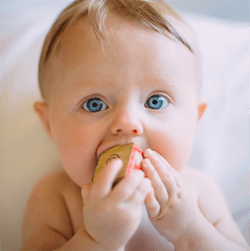
One central aspect of the lab’s activities has been the conduct of the Family Pathways Project, one of the few prospective longitudinal studies of infants from adverse environments. The initial phase of the study evaluated the risks for childhood psychopathology associated with early maternal depression and with disorganized infant attachment behavior. The key finding that emerged from this first phase of the study is that disorganized attachment behaviors identified in the first two years of life are harbingers of later aggressive behavior problems by school entry.
A second phase of this research focused on the vigorous nature-nurture debate about the origins of disorganized infant attachment behavior. Findings from the Family Studies lab, as well as other labs, indicated that the infant’s disorganized attachment behavior was not primarily temperamentally based but was associated with parental caretaking factors. To provide a fine-grained assessment of the atypical maternal behaviors associated with infant disorganization, the AMBIANCE coding system was developed. This assessment is disseminated to the field through annual training workshops and is now used internationally.
In order to understand the long-term effects of early experiences, subsequent follow-up studies of the same infants and their families have been conducted atpreschool, school-age, and young adult hood (age 20). Thus, we now have the unusual opportunity to work with a longitudinal dataset extending from the first year of life to age 20. In current work, we are evaluating the relative contributions of economic adversity, traumatic events, and early versus later caregiving quality to the prediction of psychopathology in young adulthood. The central finding emerging from these subsequent assessments is that disrupted communication on the part of the parent in the first two years has long-term implications for the child’s mental health in young adulthood, even with subsequent risk factors controlled, raising the possibility of an early sensitive period for the development of effective emotion regulation capacities.
Currently, new technologies from neuroscience and behavioral genetics are being integrated into this work through collaborations with Harvard neuroscience colleagues. In work with Harvard structural and functional MRI labs, we are evaluating the effects of adverse early experiences on brain responses to reward cues in dopamine-rich areas of the basal ganglia (with Dr. Pizzagalli) and assessing the relations between quality of infant care and structure and function of the amygdala in young adulthood (with Dr. Teicher). Our molecular genetics work with Dr. Pauls of Harvard and Dr. Sasvari of Semmelweis University in Budapest is focusing on a range of polymorphic genes in the serotonin and dopamine systems to identify genetic factors that influence both parental caregiving behavior and infant attachment behavior, as well as young adult psychopathology.
Finally, we have also developed and are disseminating two additional coding instruments. The first is a coding instrument for Reactive Attachment Disorder in infancy (RISE assessment) to address the lack of an observationally-based assessment for this disorder. The second is a detailed system for coding forms of disturbed adolescent-parent interaction, including punitive, role-confused, and disoriented patterns. Validity data on this assessment are currently being reported and training materials are being developed for dissemination to other labs.